
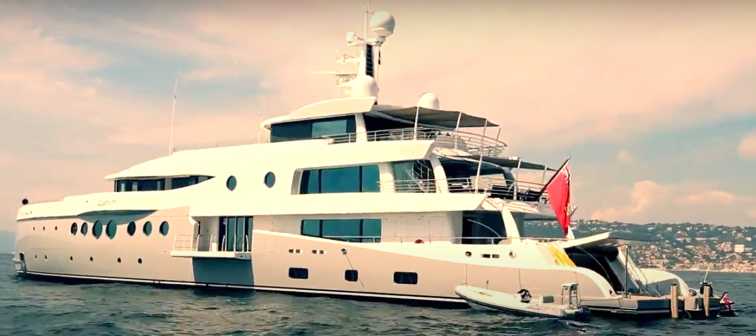
Xu Jiayin's 60 metre mega yacht called Event and thought to have cost approximately €60m.
.
Update 31 January 2024
On Monday 29 January, Judge Linda Chan sitting in Hong Kong’s High Court issued a Winding-Up order.
Subsequent to the order, trading in Evergrande shares was suspended after the stock tumbled 21%, reflecting a theoretical market value of HK$2.15 billion (NZ$450.7 million).
International investors and financial predators have been trading Evergrande’s debt notes on the basis of an expectation that China’s government will come to the rescue of Evergrande. At this point there is nothing to suggest China’s government will intervene in the group's humongous financial woes. Whatever the outcome, there are likely to be significant international money market ramifications and a major impact on China’s economy is unavoidable. It is unclear how China's government will react to the Hong Kong high court order.
As at last Friday Evergrande’s dollar bond notes were traded at around 1.5 cents on the dollar. It also remains to be seen if China authorities may differentiate between offshore and onshore stakeholders.
Judge Chan further noted that even after a winding-up order, it remains possible for Evergrande to submit a scheme of arrangement.
Update 30 September 2023
Evergrande's chairman Hui Ka Yan (also known as Xu Jiayin) has been placed under police surveillance.
In a statement, Evergrande advised that Mr Hui has been subject to mandatory measures in accordance with the law due to suspicion of illegal crimes.
Evergrande has previously revealed it had lost a combined 581.9bn yuan (US$79.6bn) over the past two trading years and it recently revealed its mainland subsidiary Hengda Real Estate had defaulted on 4bn yuan (US$547m) of debt.
Evergrande share price fell by more than 25% in the past week and the company has advised that its shares would remain suspended until further notice.
The company faces a court hearing in Hong Kong scheduled for 30 October to hear a winding-up petition which could potentially force it into liquidation.
In July, Evergrande revealed it had lost a combined 581.9bn yuan ($79.6bn; £65.6bn) over the past two years.
Update 20 August 2023
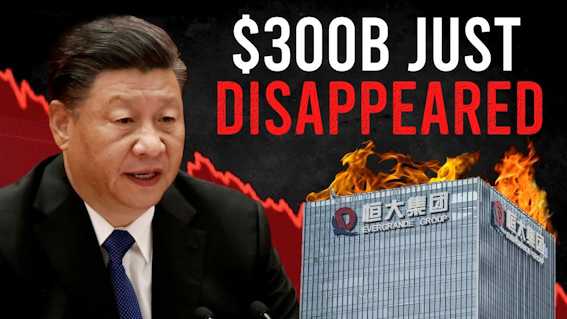
As at 16 August 2023 Evergrande Group filed for Chapter15 bankruptcy in New York. Chapter 15 bankruptcy provides mechanisms for dealing with insolvency matters involving more than one country
An Evergrande subsidiary has bond coupons worth $82.5 million in total due Monday, when the grace period ends. It was recently reported that the Evergrande Group had US$330bn in liabilities.
Country Garden, China's largest real estate conglomerate, is experiencing an unprecedented crisis. As at August 10, 2023, the company announced a forecasted net loss in the region of RMB 45 billion (US$6.18bn) to RMB 55 billion (US$7.55).
Update 31 May 2022
Evergrande's entire $22.7 billion worth of offshore debt including loans and private bonds is deemed to be in default after missing payment obligations. The group continues to reel under more than $300 billion in liabilities and it is an example of what is being experienced by many companies in China’s property sector.
Evergrande is considering repaying offshore public bondholders owed around $19 billion with cash instalments and equity in two of its Hong Kong-listed units
Discussions kicked in after highly concerned bondholders instructed lawyers to begin preparing legal action against Evergrande following its disclosure that more than $2bn of deposits at its Hong Kong-listed subsidiaries had been seized by an undisclosed lender. The seizure of funds from the property services unit was discovered during auditing in preparation for its annual report and Evergrande have advised that completion of auditing will be delayed thus final group results for the last financial year cannot yet be published.
Update 31 March 2022
As at 29 March, trading in the shares of Evergrande, Evergrande New Energy Vehicle Group and Evergrande Property Services were suspended and will remain halted until their 2021 results are delivered.
The company revealed it has US$22.7 billion in offshore debts, including bonds, private financing loans and project loans.
The group advised the Hong Kong Stock Exchange that it would delay the release of its 2021 financial results due to ongoing audit work as the world’s most indebted property developer overhauls a sprawling business conglomerate burdened with 1.97 trillion yuan (US$310 billion) in liabilities.
About 13.4 billion yuan (US$2.11 billion) of bank deposits pledged by Evergrande Property Services as security for third-party guarantees had been seized by banks.
Update 05 January 2022
$19bn of Evergrande’s international bond issues have been deemed to be in default by rating agencies after it defaulted on payment deadlines last month.
China authorities have previously indicated that they do not intend bailing out Evergrande because it would run contrary to President Xi Jinping's "Common Prosperity" policies. Financial commentators have suggested that a difference between the situation with Lehman Brothers in 2008 and Evergrande is that the markets have been watching Evergrandes evolving train-wreck.
On January 4th it was reported that China government authorities in Danzhou city, Hainan province, had ordered Evergrande to demolish thirty nine building towers covering 435,000 square meters within ten days, citing that building permits had been illegally obtained.
The thirty nine buildings are part of Evergrande's mammoth man-made Ocean Flower Island project off the coast of Hainan in which the company has invested approximately $13 billion over the past six years.
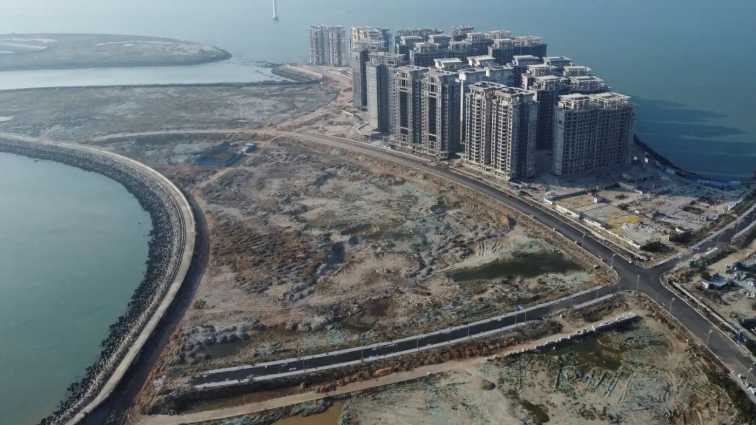
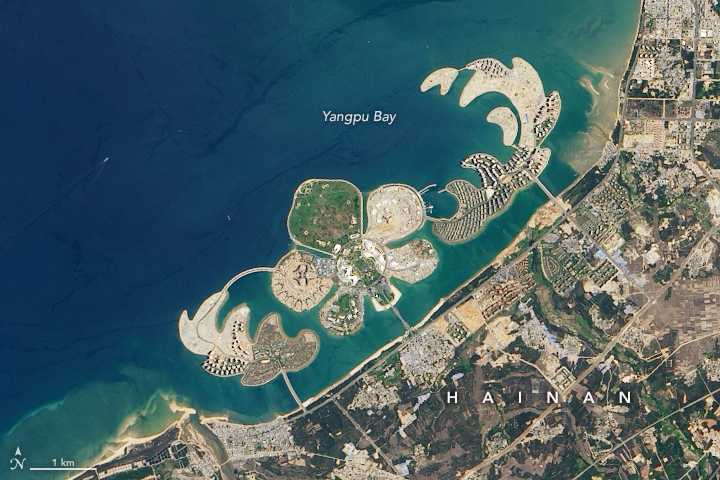
Update 22 October 2021
Evergrande’s financial situation remains dire and nobody from the company or the China Government is saying or doing anything publicly to ease growing international apprehension.
Much of the cash that Evergrande has generated is from pre-sold apartments that aren’t yet completed. Evergrande has nearly 800 projects across China that are unfinished and there are approximately 1.6 million people who are waiting to move into houses and apartments.
Billionaire investor George Soros has expressed his view that an Evergrande default could cause China’s economy to crash. Evergrande bond notes have during recent times traded at as low as 25 cents on the dollar and their principal share listing in Hong Kong has lost more than three-quarters of its value over the past year. One of the troubling aspects of this pending financial collapse is that Beijing has previously indicated they are no longer willing to bail out foreign and domestic bond holders.
Update 12 October 2021
Evergrande has now missed missed three rounds of bond payments in as many weeks and international concern continues to ramp up.
Evergrande’s auditors Price Waterhouse Coopers (PwC) has earned Rmb271m (US$42m) since 2009 and has as a matter of practice signed off on figures presented to them by Evergrande management. PwC will be confronted with criticism regarding the degree of challenge exercised with Evergande management over such matters as accounting policies.
Notwithstanding Evergrande’s ever worsening financial fragility, it is thought that major bond investors had continued to invest on the basis they considered the China Government would not allow such a major China company to fail.
Some international analysts have concluded that Evergrande’s “net gearing” (debt as a percentage of equity) is in fact significantly greater than the 100% reported in Evergrande’s accounts and there is billions of dollars of off-balance sheet debt.
Update 25 September 2021
It would appear that Evergrande missed Thursday’s deadline for payment of the US$83.5m in bond interest. The terms of the bond allow for a thirty day grace period for such payments however the current circumstances are causing serious nervousness amongst the world’s financial markets and Evergande’s shares fell another 11.6% on the Hong Kong Stock Exchange yesterday. The current outstanding coupon payment relates to a US$2bn U.S. dollar denominated bond which matures in March 2022. Yields on this bond have jumped to more than 560% from just over 10% earlier this year (bond yields and bond prices move in opposite directions).
It has been reported that the chairman of Evergrande, Xu Jiayin (also known as Hui Ka Yan) personally owns a 77% stake in Evergrande equivalent to 10.2 billion shares. He has continued to be paid huge dividends notwithstanding the company’s massive and growing indebtedness. It has been calculated he has received dividends totalling the equivalent of approximately US$8bn subsequent to the company’s 2009 establishment and includes payments of approximately US$4bn relating to the 2017 and 2018 accounting years. It is interesting that as a consequence of Evergrande being listed on the Hong Kong stock exchange, such dividends are not taxable in China. Estimates of the chairman’s current net wealth vary wildly which is hardly surprising given the vagaries of some financial numbers published in China.
22 September 2021
Thursday is a crunch day for the Evergrande Real Estate Group (pronounced eh-vr-grand) which is the second largest property developer in China. The group’s business activities have expanded to include Sport, Automotive, Tourism & Entertainment, Health, Media, Finance, Food, Drink, Music etc.
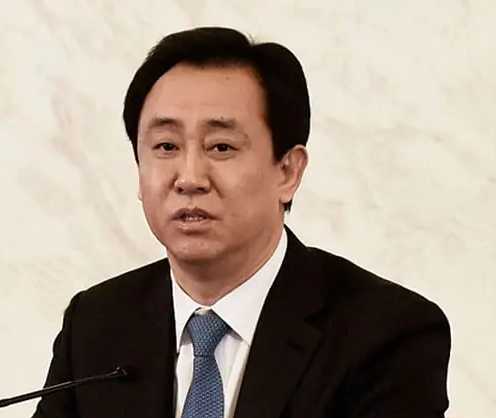
The founder and chairman of Evergrande is Xu Jiayin who is also a professor at Wuhan University of Science and Technology. Forbes have previously estimated his personal wealth at US$10.6bn. He is a member of the Chinese People’s Political Consultative Conference, an elite group of politically well-connected advisers which may be one of the reasons Evergrande has been able to become mired in such huge debt.
The Company is required to pay US$84m a/c bond interest no later than today and there is real and growing and fear they may default which could bring about a global financial response. The collapse of Lehman Bros Bank in 2007 which triggered a global financial crisis is a scary reminder of how the outcome of unfettered financial activity can rattle cages around the world.
The company was founded in 1996 and is incorporated in the Cayman Islands.
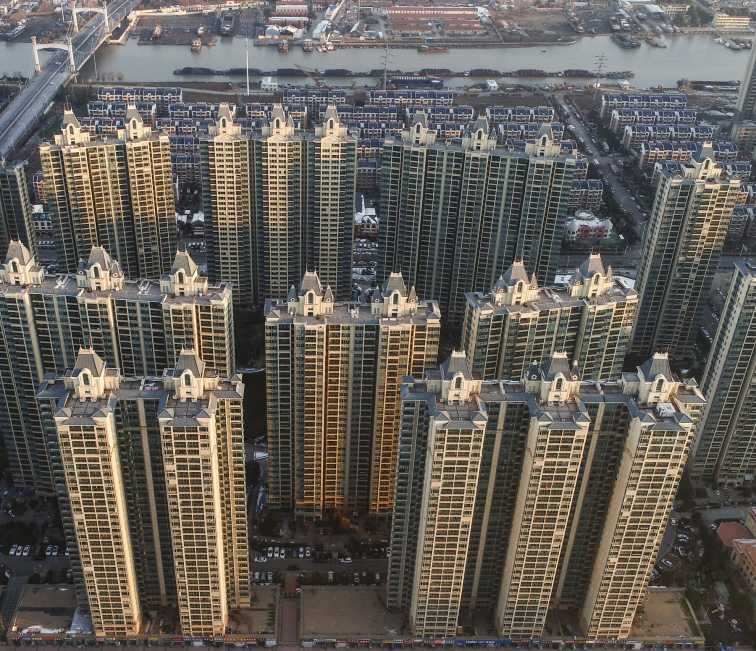
A huge number of China clients stand to lose deposits on Evergrande homes and apartments which have yet to be completed. The company has or is developing projects in more than one hundred and seventy cities throughout China and the Evergrande Group currently owns 45.8 million square metres of development land.
Evergrande is carrying debt equivalent to more than US$300bn the majority of which is via 171 China banks and 121 other financial institutions. To put it into some context, that is more than three times the entire debt of the New Zealand Government and around two-thirds of all Australian federal debt.
Evergrande currently has more than eight hundred unfinished projects throughout China and suppliers of building materials are are owed in excess of US$100m.
Evergrande shares fell as much as 7% yesterday, having dropped 10% in the previous day and the share price has fallen a dramatic 80% so far this year and bond issues have been downgraded.
There have been reports of negotiations behind the scenes about a systemic recapitalisation of Evergrande by the People's Republic of China however the China Government has been silent on the matter for the past few weeks. Given that Evergrande in incorporated in the Cayman Islands, the China Government may have philosophical difficulties with a bailout but some commentators are of the view that a rescue package for China trade creditors including those who have paid deposits is a possibility. One such commentator has characterized Evergrande as a telegraphed and controlled detonation.
Evergrande has $669 million of coupon payments due for payment this year.
In New Zealand the Stride Property Group yesterday withdrew a NZ$931m capital raising IPO relating to their Fabric Property entity because of what was described as Evergrande contagion fears.